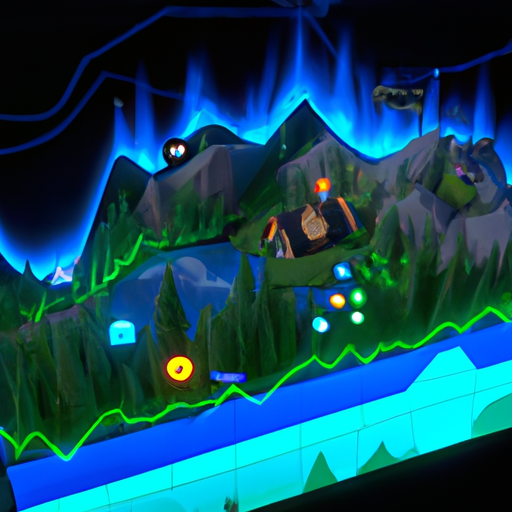- Table of Contents
In-game Governance in Crypto Games

As the world of blockchain technology continues to evolve, new opportunities are emerging for decentralized applications (dApps) in various industries. One of the most exciting developments in this space is the rise of crypto games, which combine gaming with blockchain technology to create unique and immersive experiences for players. In these games, players can own, trade, and earn cryptocurrency assets, blurring the lines between virtual and real-world economies.
The Role of Governance in Crypto Games
One of the key challenges facing developers of crypto games is how to effectively govern these virtual worlds. In traditional video games, developers have full control over the game environment, including the rules, economy, and assets. However, in crypto games, the decentralized nature of blockchain technology means that power is distributed among the players themselves.
Decentralized Autonomous Organizations (DAOs)
To address this challenge, many crypto games are implementing decentralized autonomous organizations (DAOs) to govern their virtual worlds. DAOs are self-governing entities that operate on smart contracts, allowing players to vote on key decisions that affect the game. This gives players a sense of ownership and control over the game environment, leading to a more engaging and immersive experience.
Examples of In-game Governance in Crypto Games
One example of in-game governance in crypto games is Axie Infinity, a popular blockchain-based game where players collect, breed, and battle fantasy creatures called Axies. In Axie Infinity, players can vote on proposals to change game mechanics, balance issues, and economic policies through the AxieDAO, the game’s decentralized governance system.
- Players can stake their Axie Infinity Shards (AXS) tokens to participate in governance decisions.
- Decisions are made through a transparent and decentralized voting process, ensuring that all players have a voice in the game’s development.
Another example is Decentraland, a virtual world built on the Ethereum blockchain where players can buy, sell, and build on virtual land. Decentraland uses a DAO called the Decentraland DAO to govern the development of the platform, including decisions on new features, partnerships, and community events.
The Benefits of In-game Governance
Implementing in-game governance in crypto games offers several benefits for both developers and players:
- Transparency: Decisions are made openly and transparently, giving players insight into the game’s development process.
- Community Engagement: Players feel more invested in the game when they have a say in its governance, leading to a more loyal and active player base.
- Flexibility: Developers can quickly respond to player feedback and implement changes based on community consensus, improving the overall gaming experience.
Challenges of In-game Governance
While in-game governance offers many benefits, it also presents challenges that developers must address:
- Coordination: Coordinating a large and diverse player base to make decisions can be challenging, especially when players have conflicting interests.
- Security: Ensuring the security and integrity of the governance system is crucial to prevent fraud, manipulation, and other malicious activities.
- Scalability: As crypto games grow in popularity, scaling the governance system to accommodate a larger player base can be difficult without sacrificing efficiency and decentralization.
Conclusion
In-game governance is a key aspect of the emerging crypto games industry, offering players a new level of control and ownership over their gaming experiences. By implementing decentralized autonomous organizations and other governance mechanisms, developers can create more engaging and immersive virtual worlds that empower players to shape the future of the games they love. While there are challenges to overcome, the benefits of in-game governance far outweigh the risks, paving the way for a new era of decentralized gaming.